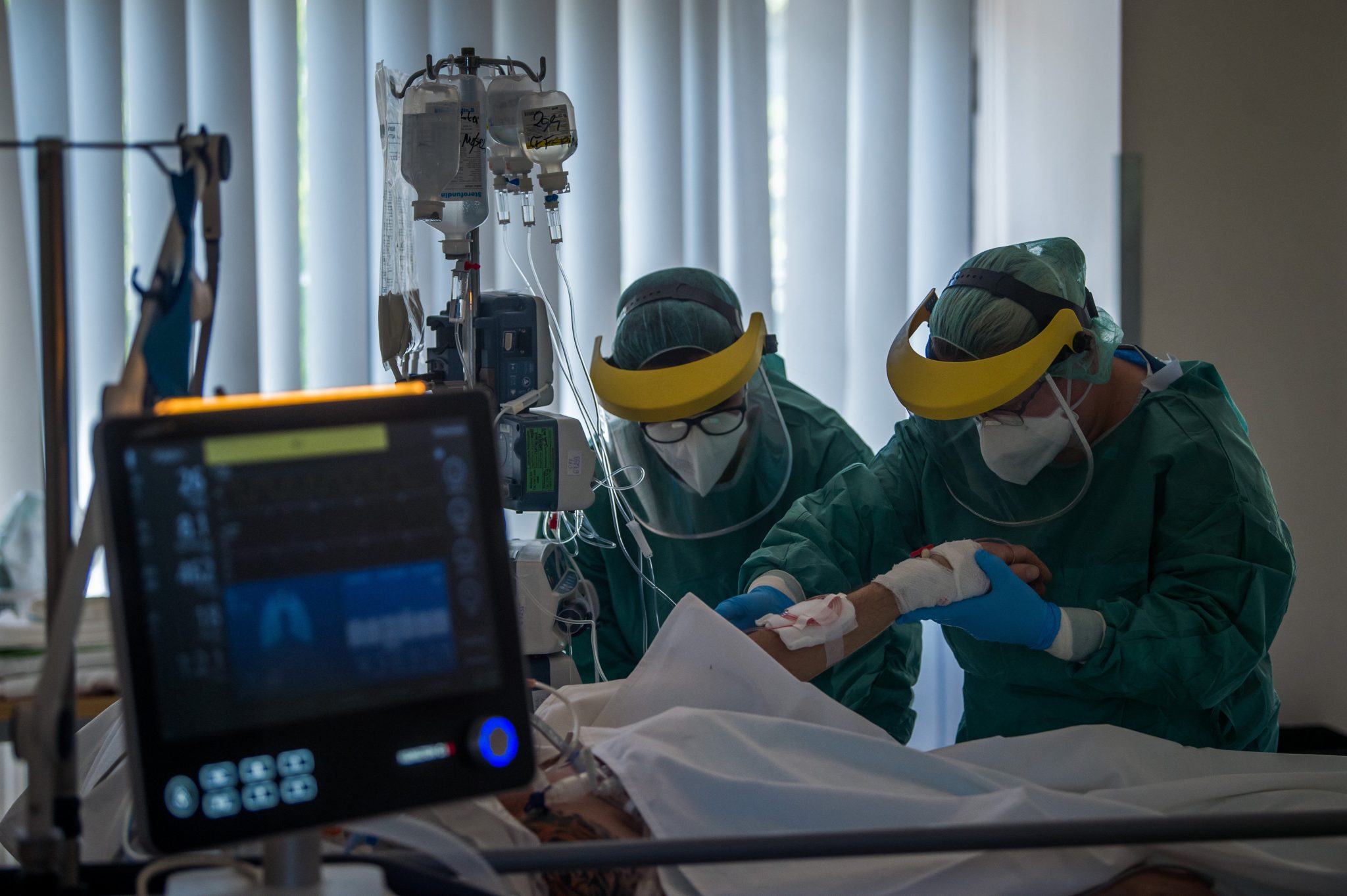
Hospitals are treating 4,830 Covid patients, 463 of whom need respiratory assistance.Continue reading

On Tuesday afternoon, the Hungarian Medical Association compared on their Facebook page the number of people who died in car accidents with the number of coronavirus victims. They encourage people in this way to get vaccinated against the coronavirus and wear masks. A nationally known intensivist blames the government’s political communication for leading to a “loss of confidence in vaccination.” He and other experts are calling for stricter measures. If the government fails to do so, they ask the public to be more disciplined.
This article was originally published on our sister-site, Ungarn Heute.
In a Facebook post, the Hungarian Medical Association clarifies the difference between the number of people killed in traffic accidents and the number of victims of the virus.
They wrote:
Therefore, everyone is urged to get vaccinated, wear a mask, and take care of themselves.
A doctor at the emergency room of the hospital in Hatvan formulated his thoughts even more explicitly: he believes that a more radical step than the one announced by the government would be necessary to get the epidemic under control. Gábor Zacher does not understand why masks are not mandatory indoors and why the vaccination campaign has to wait until November 22. He also calls for additional restrictions to be placed on unvaccinated people, who could be monitored by police. He also said there is not as much opposition in Hungary to a number of mandatory vaccines as there is to coronavirus vaccines, even though Pfizer’s vaccine is the most researched in the history of vaccines. He blames the government for the failed communication.
“What is your experience? How many patients per nurse per shift are there in each professional field – critical care, SBO, internal medicine, etc.? Have the numbers or ratios changed in the last two months?”, the Independent Healthcare Union posted the provocative questions on its Facebook page. The post was quickly flooded with comments from the healthcare community.
“In the internal disease department, there were 70 patients to 3 nurses and 2 residents,” someone wrote. “The ER is staffed by 3 nurses, there is no triage, 1 nurse in surgery/trauma, the other 2 in internal medicine outpatient/physician’s office and COVID isolation,” the next post said. “Primary care looks like an assembly line, 90-120 patients a day come in for two experts, inhumane what we have, it’s unbearable, both mentally and physically.”
The union president, Adrianna Soós, therefore, calls on everyone to take care of themselves to avoid clinical treatment.
Even if you don’t go to the ICU, you can expect to see about 10 to 15 COVID patients per nurse, and if you go to the ICU, the situation there is not much better, so it’s best to try to avoid that situation,”
Soós says.
Gábor Vattay, head of the Department of Physics of Complex Systems at ELTE, recently told ATV, “During the autumn vacations, the spread of coronavirus in Hungary temporarily slowed down, but this week the infection has extremely accelerated.”
The difference between the second wave last fall and the fourth wave this fall is that we as individuals are much better protected and therefore don’t care as much about the virus. To put it very crudely: this year, the virus will hit ten times as many people, but there are ten times fewer severe cases among them,” he added.
In his opinion, it is the combination of things in Hungary that causes the worsening situation. For example, compared to the Western European countries, we started vaccinations much earlier, the effects of which had largely almost disappeared by the summer. On the other hand, a new wave of epidemics seem to be coming from the East, which is spreading more in the Baltic countries. He explains that a basic variant of the delta is circulating in the U.S. and U.K. that can be avoided with a third vaccination, but that new variants of the delta have emerged in Eastern Europe for which there are no accurate measurements of the potential impact. However, the rise of the epidemic indicates that they can spread more rapidly and may be more resistant than earlier variants. However, these are not yet accurately measured.
He said the country is in a state of delay in terms of action. Vattay urges all people to be disciplined: wearing masks indoors and reducing the number of contacts could help us contain the epidemic.
Featured image via Sándor Ujvári/MTI